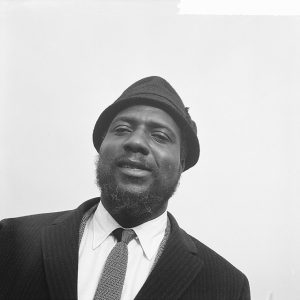Jelly Roll Morton Day
October 20, 1890 – July 10, 1941
A tribute to one of jazz’s founding fathers
Click here to Support Jazz on the Tube
Pianist, composer and leader Ferdinand Joseph LaMothe was born on October 20, 1890 in New Orleans, Louisiana.
While Morton’s later claim to have invented jazz in 1902 was hogwash, he was certainly one of its earliest giants.
He started off playing guitar and trombone before settling on piano when he was ten.
Morton performed in Storyville in his early days and then during 1900-16 he worked at such jobs as a pool hustler, boxing promoter, tailor, gambling house manager, hotel manager, pimp, comedian in traveling shows and (whenever possible) a pianist.
Morton performed throughout the South, was in Chicago as early as 1914 and played in San Francisco in 1915 before being mostly based in Los Angeles during 1917-22.
By then he was a distinctive pianist who helped smooth the transition between ragtime and classic jazz; he was composing future jazz standards, and he was developing into a major arranger and a bandleader.
In 1923 Morton moved to Chicago and began his recording career with a brilliant series of piano solos, followed by a pair of duets with King Oliver in 1924, and a series of gems with his Red Hot Peppers both in Chicago and (during 1928-30) New York.
Unfortunately the Depression stopped his recording career and Morton’s often-abrasive personality led to burnt bridges with some key musicians and promoters.
He struggled throughout the 1930s and ran the low level Jungle Club in Washington D.C. even while some of his songs (most notably “King Porter Stomp”) were hits for other bandleaders.
In 1938 he was interviewed extensively about the early days in New Orleans by Alan Lomax for the Library of Congress, performing quite a few solos that were documented.
It led to him attempting a comeback, returning to New York and making some recordings during 1938-40, but his music was considered passé during the swing era.
In ill health, Jelly Roll Morton drove to Los Angeles and started a new band, but he passed away in 1941 when he was just 55.
Here is his classic recording of “Kansas City Stomps” from 1928.
-Scott Yanow


